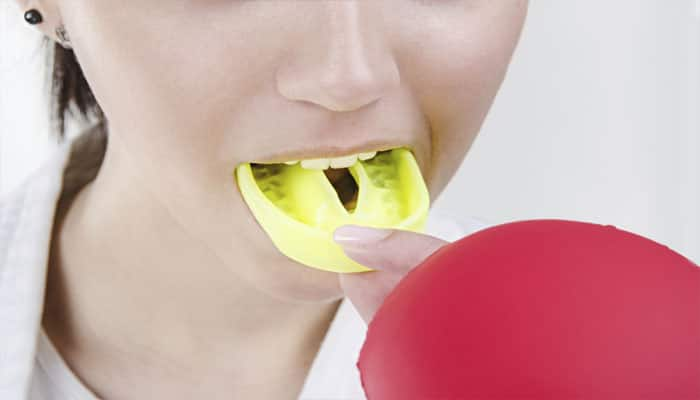New York: Engineers have developed a mouth guard that can monitor health markers such as uric acid, lactic acid and cortisol (stress hormone) levels in saliva and transmit the information wirelessly to a smartphone, laptop or tablet.
The technology, developed by researchers at University of California-San Diego, can be used to monitor patients continuously without invasive procedures.
"The ability to monitor continuously and non-invasively saliva biomarkers holds considerable promise for many biomedical and fitness applications," said nano-engineering professor Joseph Wang.
In this study, engineers focused on uric acid, which is a marker related to diabetes and to gout.
Currently, the only way to monitor the levels of uric acid in a patient is to draw blood.
Researchers collected saliva samples from healthy volunteers and spread them on the sensor, which produced readings in a normal range.
Next, they collected saliva from a patient who suffers from hyperuricemia, a condition characterized by an excess of uric acid in the blood.
The sensor detected more than four times as much uric acid in the patient's saliva than in the healthy volunteers.
"The mouth guard sensor could offer an easy and reliable way to monitor uric acid levels," added electrical engineering professor Patrick Mercier.
The patient took Allopurinol which had been prescribed by a physician to treat their condition.
With mouth guard, researchers were able to document a drop in the levels of uric acid over four or five days as the medication took effect.
In the past, the patient would have needed blood draws to monitor levels and relied instead on symptoms to start and stop his medication.
The next step is to embed all the electronics inside the mouth guard so that it can actually be worn.
Researchers will also have to test the materials used for the sensors and electronics to make sure that they are indeed completely biocompatible.
"The next iteration of the mouth guard is about a year out," Mercier estimated.
The mouth guard’s design and performance was reported in the journal Biosensors and Bioelectronics.
















